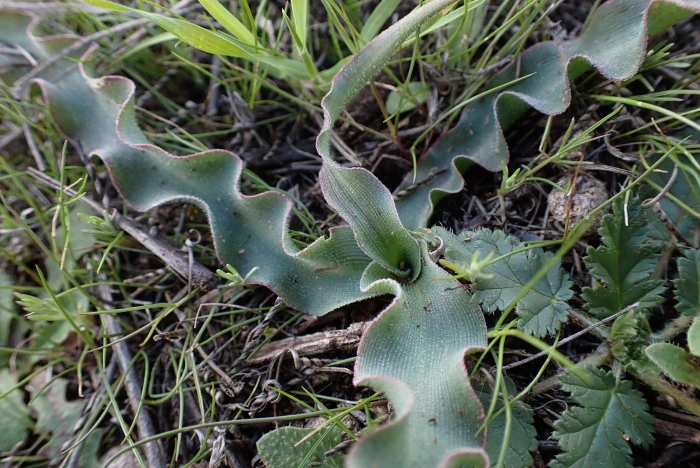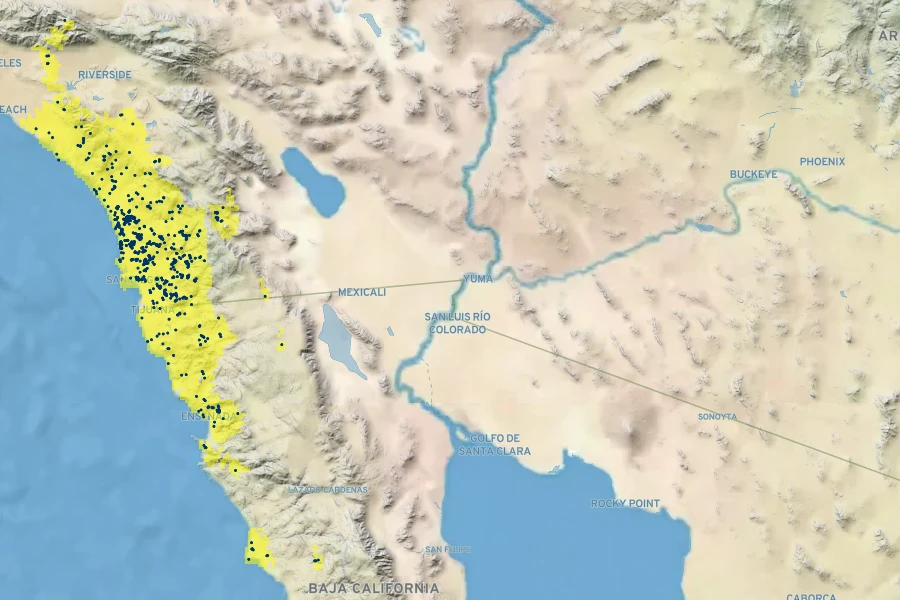Smallflower Soap Plant
/
(Hooveria parviflora)
Smallflower Soap Plant (Hooveria parviflora)
/

Madeleine Claire
CC BY 4.0
Image By:
Madeleine Claire
Recorded By:
Copyright:
CC BY 4.0
Copyright Notice:
Photo by: Madeleine Claire | License Type: CC BY 4.0 | License URL: http://creativecommons.org/licenses/by/4.0/ | Rights Holder: Madeleine Claire | Publisher: iNaturalist | Date Created: 2021-03-12T12:29:47Z |
























Summary
Hooveria parviflora, commonly known as Smallflower Soap Plant, is a perennial herb that is native to the coastal sage scrub and chaparral regions of Southern California and Baja California. It thrives in coastal sage scrub and chaparral environments. It typically grows to a height of 12 to 35 inches and features wavy, basal leaves. The plant produces an inflorescence with clusters of small, white to pink flowers that open during the day, which is a distinguishing characteristic from the related Chlorogalum species, whose flowers often open in the evening.
The Smallflower Soap Plant is valued for its drought tolerance and ability to adapt to the dry conditions of Mediterranean climates, making it suitable for xeriscaping and native plant gardens. It requires minimal maintenance once established and is often used in restoration projects to stabilize soils and provide habitat for native fauna. In cultivation, it prefers full sun to light shade and well-drained soils, and it is relatively low-water requiring once established. While not commonly affected by diseases, it can be susceptible to root rot if overwatered. This plant has no known issues with aggressive roots.CC BY-SA 4.0
The Smallflower Soap Plant is valued for its drought tolerance and ability to adapt to the dry conditions of Mediterranean climates, making it suitable for xeriscaping and native plant gardens. It requires minimal maintenance once established and is often used in restoration projects to stabilize soils and provide habitat for native fauna. In cultivation, it prefers full sun to light shade and well-drained soils, and it is relatively low-water requiring once established. While not commonly affected by diseases, it can be susceptible to root rot if overwatered. This plant has no known issues with aggressive roots.CC BY-SA 4.0
Plant Description
- Plant Type: Succulent
- Height: 0.5-1 feet
- Width: 0.5-1 feet
- Growth Rate: Moderate
- Flower Color: White
- Flowering Season: Spring
- Leaf Retention: Deciduous
Growth Requirements
- Sun: Full Sun, Part Shade
- Drainage: Medium
Common Uses
Low Maintenance, Potted Plant, Rock Garden
Natural Habitat
Native to coastal sage scrub and chaparral regions of Southern California and Baja California
Other Names
Common Names:
Scientific Names: Hooveria parviflora, Chlorogalum parviflorum, Laothoe parviflora
GBIF Accepted Name: Hooveria parviflora
